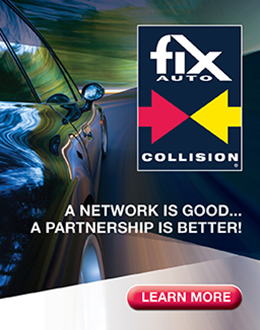Ready, Set, Autonomy
Despite the beliefs of many, it appears that Canada could be among the first countries to see automated vehicles on the roads.
According to the KPMG Autonomous Vehicles Readiness Index, Canada is currently ranked seventh among 20 countries in terms of readiness—even describing Southern Ontario as “a perfect ecosystem to support researching and testing,” according to Gary Webster, KPMG Canada’s leader on infrastructure.
KPMG’s report considered four main pillars: current policies and legislation in place, such as automated vehicle legislation and government investments in technology; how the country uses technology and innovation in the grand scheme of things, such as through industry partnerships, research and development; the nation’s road and mobile network infrastructure; and consumer acceptance.
The index found that Canada rated well in terms of technology and innovation, garnering top marks for industry partnerships and government-funded pilot projects. Several companies have been issued permits for Ontario’s automated vehicle pilot program, including Uber, Continental, Magna and Blackberry’s QNX, allowing the testing of driverless cars on public roadways—but not without strict conditions.
“Planning today for an AV future is essential, because it is not a question of if, but when, AVs becomes ubiquitous,” said Richard Threlfall, partner and global head of infrastructure at KPMG U.K. “Embracing partnerships between government and the private sector can speed technology development while helping ensure that application of AV meets public policy objectives.”
Canada also ranked well for consumer acceptance.
The Netherlands was ranked number one in terms of its autonomous preparedness, followed by Singapore, the United States, Sweden, the United Kingdom, Germany, Canada, the United Arab Emirates, New Zealand and South Korea.
Banned in B.C.
Following a recent incident with an autonomously operating Tesla in a Richmond, B.C. parking lot, ICBC has issued a statement saying the province does not permit any driverless vehicles on its roads.
Last Monday, a Tesla car was captured on video moving autonomously through a Richmond plaza parking lot. The car—which is driving on the wrong side of the road—is believed to have been operated through Tesla’s Smart Summon service, which allows owners to “summon” their cars to their location using a smartphone app, so long as they are within 200 feet (60 metres) of the car.
The video also shows a frazzled security guard attempting to catch up to the vehicle on foot.
Soon after the video began making its viral rounds, ICBC issued a statement saying that it is keeping up with developments in autonomous technology.
“We’re actively monitoring the development of autonomous vehicle technology here in B.C. and in other jurisdictions,” read ICBC’s statement.
While the insurer is keeping an open mind about driverless tech, it stated that, for the time being, autonomous cars are banned in B.C.
“This is an emerging field that raises questions in regards to both safety and policy,” it said. “Currently, B.C. laws do not permit driverless vehicles on our roads. A vehicle being driven autonomously in a shopping mall parking lot, for example, is absolutely not allowed.”
Atlantic Infrastructure
Newfoundland and Labrador Hydro has officially laid out a plan to install a network of high-speed EV charging stations across the island portion of the province and hopes to have operations in full swing by the end of 2020.
On Oct. 23, Newfound and Labrador Hydro posted a tender, inviting bid for land leases for 14 EV charging stations near the Trans-Canada highway, all in specific locations spanning from Port aux Basques to St. John’s, N.L. Level three chargers—which typically take between 30 minutes and one hour to charge an EV battery—are to be installed at each of the surveyed locations.
In the past two years, Atlantic counterparts New Brunswick and Nova Scotia have installed similar provincial networks. Newfoundland and Labrador is currently the only Canadian province without a single publicly available level three charger.
The province has said the key to keeping up with the rest of the country’s infrastructure is cash—if funding falls through, the plan could be cancelled at any time.
Despite that problem looming overhead, EV enthusiasts around the province are celebrating.
“This is the first step,” said John Seary, the leader of an EV lobby group. “It’s along the Trans-Canada— it does not include the Burin, it does not go up into the Labrador or up the Northern Peninsula, et cetera. But if they follow the same type of chargers that have been installed elsewhere in Atlantic Canada, we will end up with a very nice, robust network that will allow anybody with an electric car of just about any age to traverse back and forth across the island.”





































